Table of Contents[Hide][Show]
Your sunscreen is supposed to protect you from damaging UV rays, right? According to the Environmental Working Group (EWG), however, which put out a safe sunscreen guide this year, if the ingredient list contains “retinyl palmitate,” the formula may actually be encouraging the formation of malignant, potentially cancer-causing cells in the skin.
How solid is the science behind this claim? Should you be avoiding retinyl palmitate in your sunscreen formulas? What about your other skin care products that contain this ingredient?
If your sunscreen has retinyl palmitate,
is it doing your skin more harm than good?
What is Retinyl Palmitate?
Both retinol and retinyl palmitate are widely used ingredients in skin care products. Both are forms of vitamin A. Retinol is a pure form of the vitamin found in green and yellow vegetables, egg yolks, whole milk, beef, chicken, and fish-liver oil. It’s essential to vision and bone development and plays a role in vision health. Retinol is also hugely popular in skin care products because the skin naturally converts it to retinoic acid, which helps to stimulate collagen production, increase cellular rejuvenation, and decrease pore size, creating softer, smoother skin.
Retinyl palmitate is considered to be a gentler, milder form of vitamin A. A combination of retinol and palmitic acid, it has been found in studies to be an effective antioxidant. The skin must first convert it to retinol, then retinoic acid, for it to have the same anti-aging effects, so higher concentrations are used to stimulate skin repair.
What are the Concerns?
Retinyl palmitate is often used in sunscreen because of its antioxidant properties and gentle nature. It’s gentle enough to be used on sensitive skin, yet theoretically adds antioxidant protection to help the skin ward off damage caused by UV rays.
The concern about retinyl palmitate in sunscreen (or in other products, really) came about when the EWG, a non-profit organization, highlighted a 2009 animal study by the National Toxicology Program (NTP). Researchers subjected hairless mice to simulated UV rays from lamps in the morning for five days a week, for 40 weeks. The mice received topical applications of either a control cream containing 0.001% retinoic acid or 0.1%, 0.5%, 1.0%, or 2.0% retinyl palmitate in the afternoon of the same days they were exposed to the light.
The conclusions: retinoic acid enhanced the photocarcinogenic activity of UVB rays in the mice and increased multiplicities of skin lesions. Retinyl palmitate also enhanced photocarcinogenicity, increased skin lesions, and increased the presence of squamous cell neoplasm’s—the beginnings of skin cancer.
This study actually confirmed the results of other research. In 2006, for instance, scientists found in laboratory studies that when subjected to UVA light, retinyl palmitate acted as a “photosensitizer,” leading to free radical formation and the peroxidation of fatty cells.
Another study in 2005 found the same thing. Researchers wrote: “These results suggest that RP [retinyl palmitate] is photomutagenic in combination with UVA exposure in mouse lymphoma cells….” In other words, when retinyl palmitate was exposed to UV rays, it created changes in the skin that could lead to damage, aging, and cancer.
Because of these and other studies, the EWG issued a statement recommending that manufacturers of cosmetics, sunscreens, and other personal care products remove retinyl palmitate from all products to be used on sun-exposed skin, and that consumers avoid buying products that contain this chemical.
AAD Disagrees
Some agencies disagree with the EWG’s conclusions. In 2010, the American Academy of Dermatology defended the use of retinyl palmitate in sunscreen, stating there was “no convincing evidence” that the ingredient causes cancer. Their scientists assert that the ingredient acts differently in the real world, outside of the laboratory. In a commentary in the AAD journal, dermatologist Steven Wang stated:
“If studied on its own—outside of this environment [in combination with other antioxidants when applied to the skin], its antioxidant properties can rapidly be exhausted, allowing the production of oxygen radicals. In these non-human studies, retinyl palmitate was the only compound studied—making the biological relevance of these findings to humans unclear.”
AAD dermatologists also added that the mice used in the animal studies have a “marked propensity” to develop skin cancer because of their extra thin skin, and so the results should not be extrapolated to humans.
The Skin Cancer Foundation came up with similar conclusions, stating that the evidence did not support the claims that retinyl palmitate is a photocarcinogen.
My Takeaway
Reviewing all this evidence is enough to make anyone confused. Should we worry about retinyl palmitate or not? Regardless of whether or not the ingredient is photocarcinogenic, we do know that if you’re using vitamin A ingredients on your skin, you must avoid the sun. Look at any skin care product with retinol or retinyl palmitate or retinoic acid, and you’ll see the warnings—use sunscreen, stay out of the sun, avoid sun exposure, etc. The warnings state that vitamin A products increase cell turnover and exfoliation, leaving skin more susceptible to damage from UV rays.
So regardless, vitamin A products make UV rays more dangerous to your skin. It seems to me that including them in sunscreens doesn’t make a lot of sense? Dermatologists may argue that in combination with sunscreen ingredients and other antioxidants, they work well. I would not feel comfortable with that conclusion, particularly with what we know so far.
Why take the risk? There are plenty of sunscreens out there without vitamin A ingredients in them. I would suggest checking out the EWG’s guide and using some of those safer options. Then, if you’re using vitamin A in your skin care products, please go overboard in protecting yourself from the sun. The truth is, most people don’t. They forget sunscreen, or forget to reapply. And we have no idea really, how effective those sunscreens are that we find in moisturizers or foundation products.
Do you avoid the use of retinyl palmitate? How about other vitamin A products?
* * *
Photo courtesy tilak.dutta via Flickr.com.
Sources
Xia Q, et al., “Photoirradiatio of retinyl palmitate in ethanol with ultraviolet light—formation of photodecomposition products, reactive oxygen species, and lipid peroxides,” Int J Environ Res Public Health 2006 Jun;3(2):185-90.
Mei, N., et al., “Photomutagenicity of retinyl palmitate by ultraviolet a irradiation in mouse lymphoma cells,” Toxicol Sci. 2005 Nov;88(1):142-9, http://www.ncbi.nlm.nih.gov/pubmed/16107546.
Katie Bird, “Retinyl palmitate is safe for use in sunscreens, says AAD,” Cosmetic Design, August 10, 2010, http://www.cosmeticsdesign.com/Formulation-Science/Retinyl-palmitate-is-safe-for-use-in-sunscreens-says-AAD.
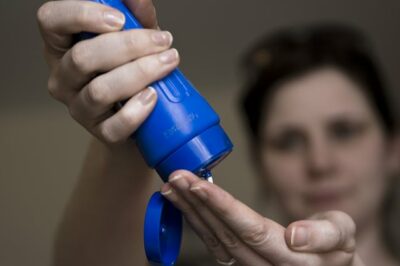

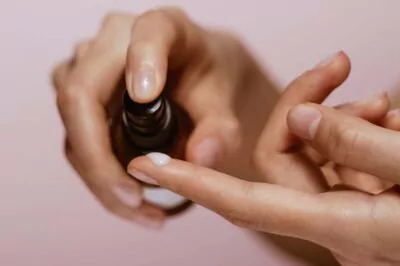
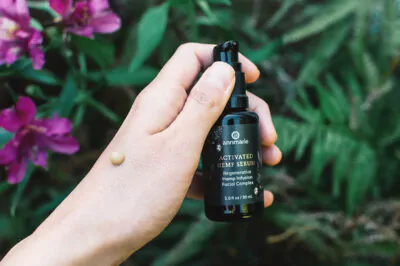
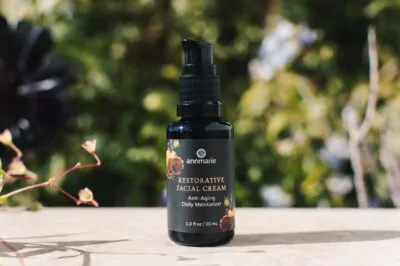
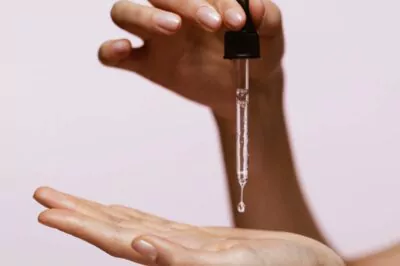
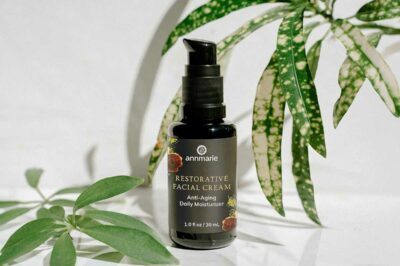

forgot this in my post above.
In my researching regularly re skin cancer, it was not around when I was a child/growing up, and only since the creams and Big Pharma sunscreens came into being has their been this massive increase in skin cancers. The skin functions as a recipient of whatever is placed onto it and absorbs, and people seem to forget this.
DRyan
I would never use a “modern” sunscreen. I am 73 years old and in Australia I surfed, swam, sailed, walked back and forth to school, then to the train when in High School, bicycled, rode horses – all without a hat in those days, and no sunglasses until 20 years old.
Regularly went to the surfing beaches and laid on the sand to suntan, into the salt water surf and this was an all day pattern. Once did have major sun blisters on my shoulders – ouch! a wonderful shower when back home in the evening and oh what a wonderful feeling at the end of such a surfing day, and the anticipation of the tan developing.
The only protectant from the sun was Coconut Oil – if one used a protectant.
Touch wood! I have never had skin problems and my facial skin is years and years younger, I rarely use makeup as my skin and bone structure is good. And people even now, women, comment on my good skin as I look much younger than my biological age.
I put this down to a healthy, active lifestyle, despite the metals and chemicals in foods and so much else, and the air,
I would NEVER EVER use a modern SUNSCREEN – NEVER!!1
Having asked questions of people overtime about suncscreens/skin cancer etc., I am CONVINCED that the Big PHarma suncreens interact and CAUSE Skin problems.
I never used suncreeens on my children – no skin problems. and we are all of ANglo-Saxon/European backgrounds – very fair complexions, blond hair etc.,
People are too willingly led by advertising from Big Pharma which has and is saturating any form of advertising, especially television, be it Australia, Italy, UK etc., Dettol and Suncreeens are not necessary, use coconut oil or olive oil or products made with natural ingredients.
D Ryan
Interesting quandary! Definitely something worth researching if you’re wondering. Let us know what you find out!!
As a skin specialist who has been working with vitamin A based products for the past 13 years, when I first read EWG’s report on potential dangers on using vitamin a and sunscreens I was understandably very concerned. On further investigation, I am much less so. Firstly, these studies were carried out on mouse skin, which while similar to human skin is not exactly the same and may have metabolic processes in this instance which are significantly different. Additionally, retinol and retinyl palmitate were used in isolation, which isn’t a reflection of normal circumstances where other synergistic antioxidants play an important role. There are also studies using mouse skin and vitamin A incidentally which show a significant reduction in the formation of UV induced skin cancer. The most compelling argument for me is purely anecdotal – vitamin A is not a new ingredient. It has been widely used in skin preparations for at least the last 30 years, and as it was specifically designed in some ranges to prevent the formation of skin cancer (depleted epidermal resources are linked with skin cancer development), it has been used by fair skinned people in areas with a high UV index over this time. There must be hundreds of thousands of people regularly applying vitamin A based products to their skin over this time, but I couldn’t find a report of a surge in the number of cases of skin cancer. The primary reason that sunscreen is recommended when using vitamin A (particularly retinol) is that it is not photostable, and is destroyed on exposure to UV, rendering it useless as a skin rejuvenator.
If retinyl palmitate is listed as one ingredient in a Boots Botanics hydrating eye cream with ginkgo I bought recently, is not safe to use it?
Retinyl palmitate is listed at mid list, so it’s not one of the first ingredients….
I would appreciate your input.
Sonia, If you’re concerned, why not use the eye cream only at night? It seems the detriment of this ingredient comes about when exposed to sunlight.
So, my skin is sensitive to vitamin A and Retinol, but I have seen a HUGE difference in my complexion and wrinkles since I started using a product with Vitamin A. People are telling me I look younger! Retinoids bind to corresponding receptors in the skin. This peels off the top layer, which evens skin tone, and thickens the layers below, which smoothes out wrinkles. Retinoids also boost collagen, a protein that keeps the skin firm and springy, by blocking the genes that cause it to break down and increasing other gene activity responsible for its production.
Yes, it does make me sensitive. But its worth it. I have tried all the Vitamin A creams, and the only ones that work for my sensitive skin are the Made from Earth Firming Serum and the Lady Soma Renewal Serum. I just switch between the two. The Lady Soma is probobly my favorite.
I have the same question as Toby (April 14, 20150) and would very much appreciate a reply.
Hi Lenore and Toby,
This article is meant to present the current evidence on Retinyl Palmitate. It’s hard to say for certain whether you should be using it, but I’d say that using it only at night is certainly better than using it during sun exposure.
Do think it is safe to use a retinyl palmitate moisturiser at night? Then wash it I the mornings. It’s really been helping my skin